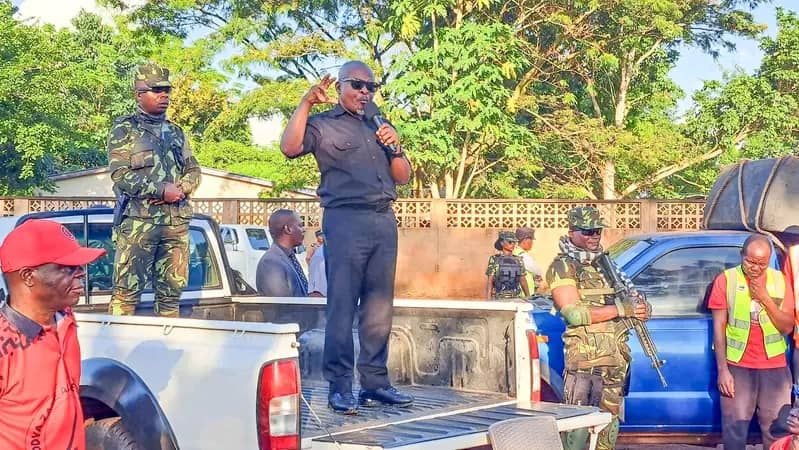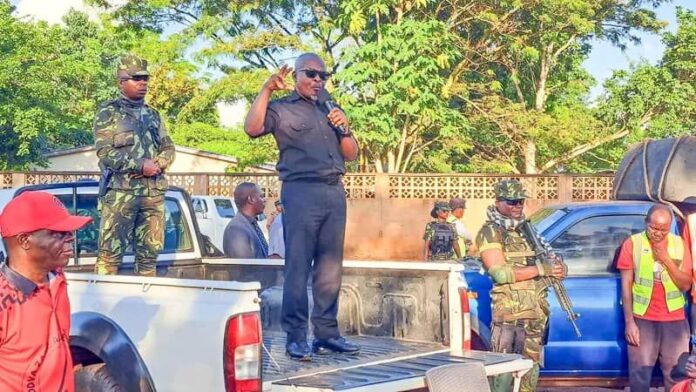By Burnett Munthali
Vice President of the Republic of Malawi, Dr. Michael Usi, who is also the leader of the political party Odya Zake Alibe Mlandu, has advised the people of Mulanje District not to be swayed by individuals seeking to sow divisions and promote political disunity.
Dr. Usi made these remarks during a public engagement, where he expressed concern after receiving reports that some individuals were allegedly planning to cause disorder during one of his meetings.
He strongly condemned such behavior, emphasizing that political differences should not be used as a reason to disrupt peace or unity in communities.
According to Dr. Usi, Malawi is a democratic nation where people are free to belong to any political grouping of their choice, but this freedom should not be abused to create chaos or incite violence.

He reminded the people that his party, Odya Zake Alibe Mlandu, has long-standing roots in the political landscape, predating even the formation of the now well-known UTM Party.
Dr. Usi further stated that the foundation of his party lies in the promotion of self-reliance, dignity, and discipline—values that are essential for Malawi’s progress.
He declared that his party has a solid presence across the country, stretching from Nsanje in the south to Chitipa in the north.
This, he noted, is a testament to the party’s wide appeal and the trust that Malawians have placed in its vision.
The Vice President also used the occasion to urge political players, especially at the local level, to engage in constructive politics that focus on development and service to the people.
He said the time for politics of insults, violence, and provocation is over, and that Malawi now needs leaders who are mature, focused, and committed to national unity.
Dr. Usi’s remarks were met with applause from the audience, many of whom expressed appreciation for his calm, unifying tone and his call for political tolerance.
As the country gears up for the 2025 general elections, Dr. Usi’s message of peace, order, and responsible political engagement resonates strongly in regions that have previously experienced tensions during campaign periods.
In conclusion, the Vice President’s visit to Mulanje was not only a political outreach but also a reaffirmation of his leadership style—one that prioritizes peace, truth, and the empowerment of ordinary Malawians.



